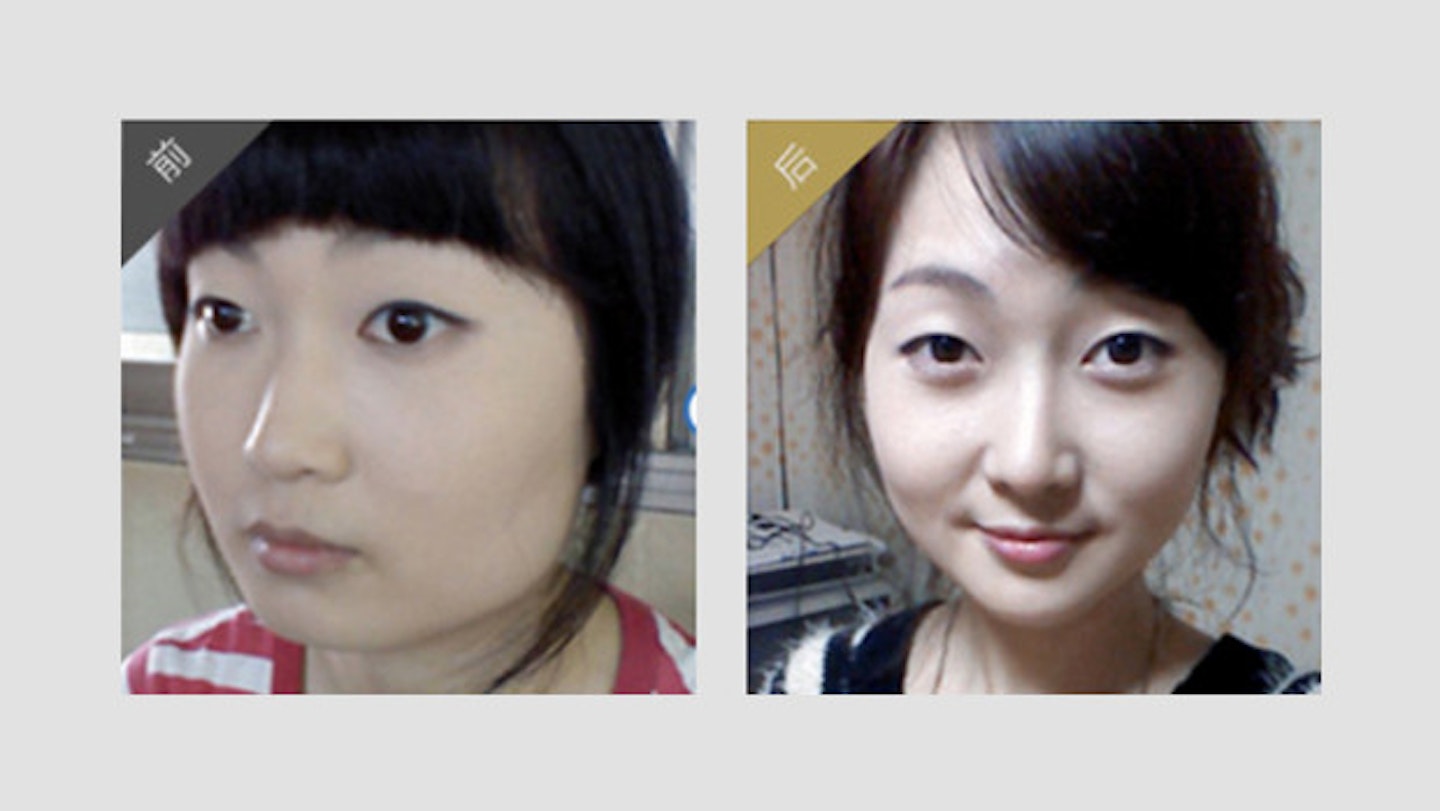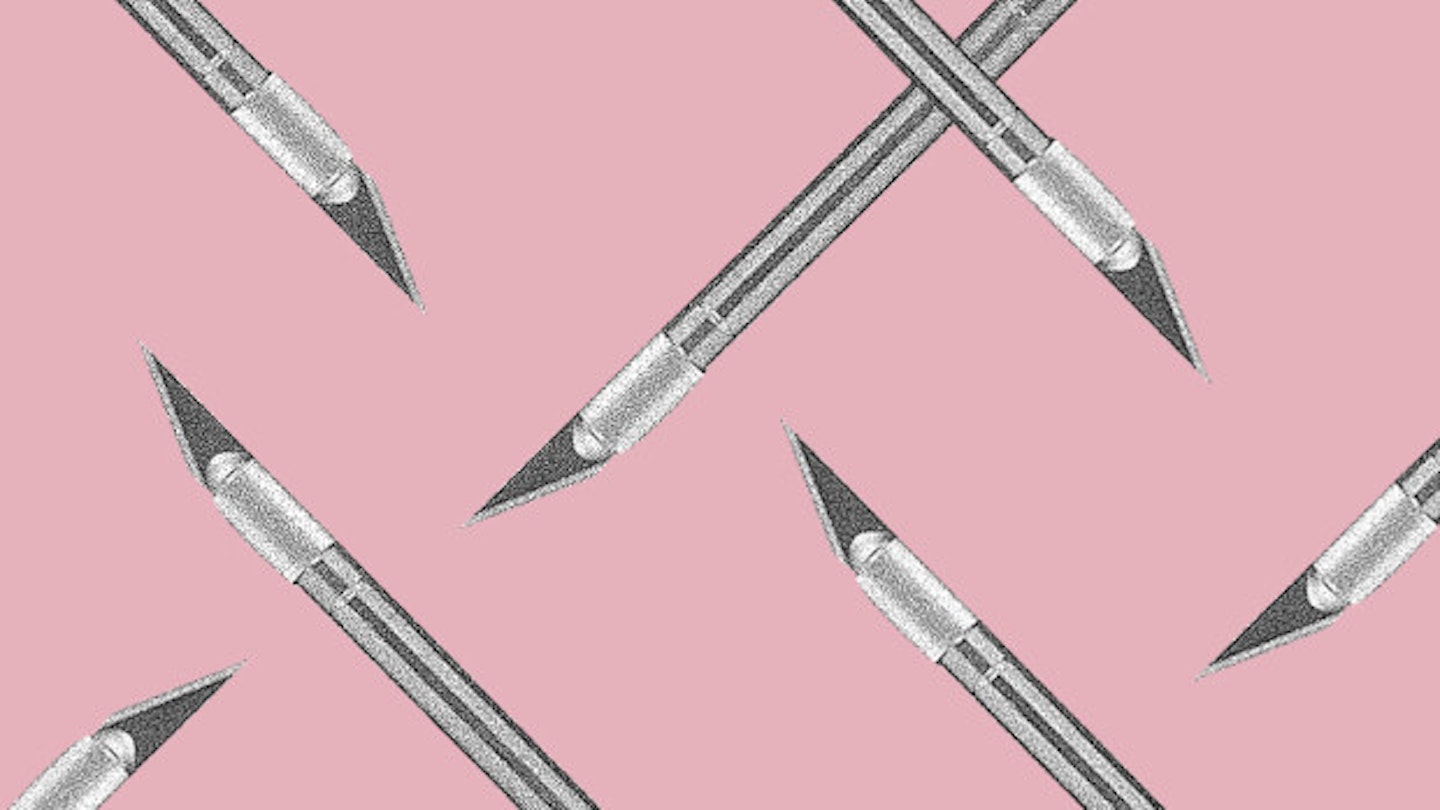If you're a graduate in the UK this summer, the competition for jobs might seem painfully competitive and intense. But if you think you've got it bad, think again. Forget CV honing, wardrobe rationalisation, and getting a new haircut. In China, newly qualified graduates are spending thousands of pounds on cosmetic surgery to gain an edge in the country’s deeply competitive job market.
A record 7.26 million Chinese students graduated last month – seven times the amount 15 years ago – and as the economy's growth continues to slow experts believe the rate of unemployment after six months could hit 30%.
In such a tough environment, young people refuse to let anything stand in the way of success. Including how they look. Friendly billboards featuring grinning models bombard University towns with tempting offers:* Summer break is perfect for transformation. Will you consider it?*

Every job has thousands of applicants, says one 24-year-old female graduate from Jilin, who wants to remain anonymous. 'Nowadays, competition is very fierce. If you have a pretty face, when you apply for jobs, you will get more chance of receiving interview invitations,' she reveals (it's normal in China to attach your picture to your CV when you apply for a job).
The number of graduates in 2014 is seven times the amount 15 years ago, increasing the pressure for applicants to stand out.
'When two candidates with similar ability compete for the same position, there’s no doubt that the interviewer will choose that prettier one. I mean a good-looking face is like an ultimate tool that can help you stand out.'
Her chillingly pragmatic attitude is the reason that last February, she had eyelid surgery, turning her lids from single-fold to double-fold – a Western look that’s hugely popular in Asia. 'A beautiful face is really a very powerful trump card,' she stresses. 'People are more willing to help beauties.'
Discrimination of all kinds remain rife in the Chinese workplace. This year, the first gender-discrimination lawsuit was heard in the country. A graduate successfully sued a private tutoring company after they refused to employ her on the basis of being female.
But such equal opportunity success stories are the exception. In reality, employers can handpick ‘model employees’ with impunity.
Before I had my surgery, I had small and pale eyes. When I applied for part-time jobs. I got fewer interview chances.
According to the International Society of Aesthetic Plastic Surgery, China’s rapidly plastic surgery market is already huge. Four years ago, the £2.8 billion industry was ranked as third in the world, with 3.4 million surgeries. It’s a number reported to be growing by 40 per cent each year.
The young woman from northeastern China told us that her surgery has had the desired effect. 'Before I had my surgery, I had small and pale eyes. When I applied for part-time jobs. I got fewer interview chances,' she explains. 'I seldom passed interviews and I felt unhappy about it. I decided to have surgery to improve my chances of passing interviews. I talked to my parents and they agreed with my decision.'

By Western standards, prices for surgery in China are reasonable. You can have eyelid surgery for approximately £260, face-thinning surgery for £270 and nose surgery for £380.
And there seems to be little doubt in the minds of young Chinese that the perfect face will land them the perfect job. Internet forums are filled with stories of professional woe from men and women, whose flawed features have destined them for the back office.
The interviewer rejected me by simply saying: "You are plain-looking."
Soon-to-be graduate Jing from Guangzhou describes her application to become an assistant to a real-estate marketing director. 'I thought I was qualified for this job as my major is marketing and the real estate market is booming, but the interviewer rejected me by simply saying: "You are plain-looking." Then they sent me to work at the logistics department.
'Every day, I just bring people tea and sort out files. I earn very little. But those assistants to managers earn almost 10,000 yuan [£1,000] per month.' Jing subsequently saved her money and had facial surgery, nose surgery and liposuction.

In 2011, a student from Chengdu hit the news when she wrote the following in her CV: 'I am very beautiful. Do you want to see me?' But three years later, her tactics seem forward-thinking rather than clumsy.
'It can definitely improve your prospects and competitive power,' Dr Song from the Shanghai East Plastic and Cosmetic Surgery Clinic says matter of factly about the growing plastic surgery trend. 'For new graduates, to find a good job depends on many factors: ability, intelligence and appearance etc. Not only in China, but also across the globe, those with the better appearance have the competitive edge.'
He believes that cosmetic surgery works by improving a person’s sense of self-belief – something our interviewee agrees with. 'I wasn’t confident about my appearance, which, in my opinion, affected my performance to some extent,' she says. 'It improved my chances of receiving interview invitations. I think the surgery has really changed something.'
But while plastic surgery and an obsession with physical appearances are an increasingly normalised element of Chinese culture, there's no downplaying the fact that we're talking about hugely invasive medical procedures, with all the atendent physical – and psychological – risks. Permanently altering your appearance when there's not even a guarantee of a job at the end of it (it may have improved our interviewee's confidence, but she's yet to land a job) may be sold to young Chinese graduates as a savvy move, but in reality it's just a sign of how desperate the job market has become.
Like this? Then you might be interested in:
Applying For A Graduate Job? You've Got 38 Other People To Beat
How To Move back In With Your Parents After University: And You Both Survive
You Need To Watch The Secret Life Of Students - The Reality Show About Starting Uni
This article originally appeared on The Debrief.
